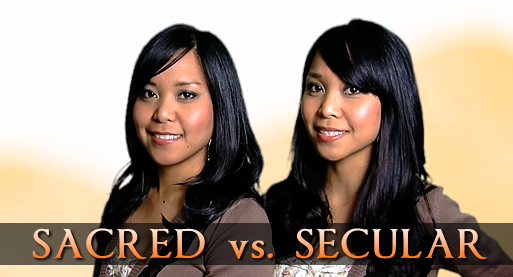Melbourne, AUS: pop songs not appropriate at funerals
-
Here's some happy news.
Good sense takes a step up Down Under, as the Melbourne archdiocese gives priests guidance about proper funeral music:
football songs, pop and rock tunes, political songs are out.
"Secular items are never to be sung or played at a Catholic funeral, such as romantic ballads, pop or rock music, political songs, football club songs," the guidelines state.
"The wishes of the deceased, family and friends should be taken into account, with pastoral kindness and consideration. But in planning the liturgy, the celebrant should moderate any tendency to turn the funeral into a secular celebration of the life of the deceased."
The new rules state that any celebrations of the person's life should be carried out separate to the funeral service.
"A Catholic funeral is not 'a celebration of the life of Mary Brown' or 'a memorial service for Mary Brown'. These designations should never appear in media announcements or on the booklet."
Most of the article is devoted to whinging from some priest, but at least he says he'll comply. -
Definitely go and read the article. The priest really fails and must give his superiors heartburn. He's really a man of the people and not the cloth.
-
This appears to be a "hot topic."
This video, to my astonishment, has been viewed more than 14,000 times:
HIGH QUALITY VERSION • YOUTUBE VERSION • DailyMotion Version • GLORIA TV VERSION
On YouTube, it has received rather vitriolic (shrill?) comments.
The major complaints are two:
1. The quotes are mainly Pre-Vatican II (100% false)
2. Pope Benedict's views on Sacred music are not quoted. (It seems we wrongly assumed everybody already knew how this Pope feels about secular styles at Mass) -
i hear the pope is cutting down on the sacro-pop in his UK visit, but have heard conflicting reports....
-
The use of modern hymnals that intersperse the words between the staves instead of the opposite page has weakened out musical cultures.
1. Prior to this time, people had to learn the notes separate from the music
2. Singers memorized their melodic lines unknowingly, as a common part of their learning
3. The music and words stood on their own, each as an independent entity
4. Composers realized that writing common meter hymns made them more useful
5. Congregations who knew 10 or so could sing almost any hymn text in the hymnal
6. The Tunes had a life of their own, in fact, the tune for O Come All Ye Faithful was also sung to an Easter text
7. Hymn tunes, like chant were not sung on the street
8. Such were texts treasured that choirs that rehearsed in England outside of the church used nonsense syllables and text to save the sacred text for the Sacred Building
9. When you flicked through the dial on a Victorian radio for romantic music after an evening of billiards you did not have to listen to find out if the song you were hearing was a Sacred text (downer) or Romantic...because secular MUSIC was different from secular music. -
I'm savoring the notion of Victorian radio. While Marconi set up a wireless telegraphy station before Victoria's death, audio broadcasting seem to have come a bit later. Even had they been around, the rot had already set in: Ives wrote "O have mercy Lord on me" in 1892 and included it as a satire in the 114 Songs (page 206 here, with wry footnote) with alternate texts "Yale Farewell!" and "When the waves softly sigh". Apparently the golden age must be sought before that and some time after Isaac's Innsbruck.
-
It started out as Medieval Radio (after a jousting match) I became aware that, of course, choral music was just really splitting off into secular veins and and you have to listen to the lyrics to know which you were hearing....JUST LIKE TODAY!
Welcome to the MusicaSacra Forum!
To participate in the discussions on Catholic church music, sign in or register as a forum member, The forum is a project of the Church Music Association of America.
Categories
- All Discussions21,270
- General Music Discussion8,293
- Job Openings214
- Management of Music Programs852
- Choral Matters534
- Church Documents and Rubrics528
- CMAA Notes304
- Events730
- For Newcomers: Read First26
- Sacred Polyphony548
- Hymnody875
- Gregorian Chant: General2,708
- ↳ Graduale Romanum and Liber Usualis369
- ↳ Graduale Simplex60
- ↳ Semiology63
- Vernacular Plainsong697
- Anglican Use and Anglican Chant68
- Organ, Other Instruments and Repertoire438
- New Composition/Works in Progress1,302
- Recordings234
- Music for Hispanic Ministry162
- Music Education: Children213
- Music Education: General222
- News Items245
- Positions Wanted3
- General Discussion: Catholicism740
- Amusements178
- General Discussion1,037
- Opinions119





